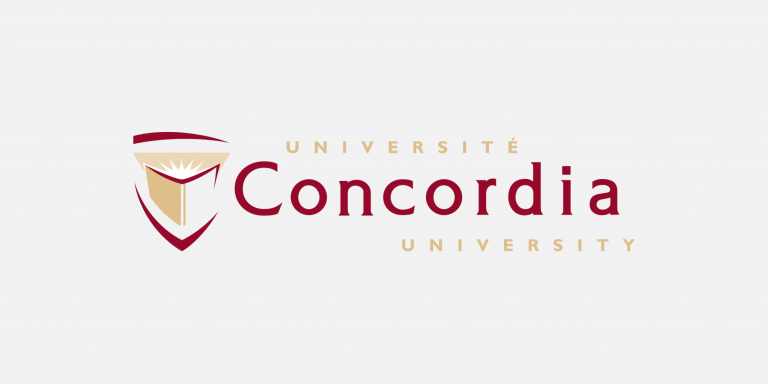
On March 18, Montreal-based Concordia University launched its Institute for Applied AI and announced the appointments of Tristan Glatard and Fenwick McKelvey as co-directors. In this capacity, they will contribute to the development of the Institute’s interdisciplinary activities, partnerships and interests.
Founded in 1974, Concordia University has two campuses located in Montreal. Ranked as Canada’s top university under 50, it is distinguished by its innovative approach to experiential learning and cross-functional research.
Concordia welcomes more than 50,000 students each year to the Faculty of Arts and Sciences, the John Molson School of Business, the Gina Cody School of Engineering and Computer Science, the Faculty of Fine Arts and Concordia Continuing Education. It has 6,700 faculty and staff, and annual sponsored research revenues of more than $60 million.
Concordia’s research areas are:
- Smart, sustainable and resilient communities and cities;
- Health;
- Synthetic biology;
- Aerospace;
- Artificial intelligence.
Concordia is actually one of the 7 university members of SCALE AI, a Canadian supercluster that funds AI initiatives: industry-led projects, training programs as well as its Accelerator program.
The Applied AI Institute
In 2021, Prof. Tristan Glatard co-founded the Applied AI Institute with Professors Kash Khorasani of the Department of Electrical and Computer Engineering and Nizar Bouguila of the Information Systems Engineering Institute. Both will remain associated with the institute as founding directors and will add their research expertise and leadership to the institute’s capabilities.
The two co-directors
Prof. Tristan Glatard holds the Canada Research Chair (Tier 2) in Big Data Infrastructure for Neuroinformatics. Prior to his arrival at Concordia in 2016, he was a researcher at the Centre national de la recherche scientifique in France and a visiting scholar at McGill University. Currently a professor in the Department of Computer Science and Software Engineering in the Gina-Cody School of Engineering and Computer Science, his research focuses on designing infrastructures for efficient, open, and reproducible neuroinformatics for medical image analysis and neuroimaging. He stated upon his appointment:
“It is a privilege for me to continue the extraordinary efforts of my colleagues. The Institute has grown exponentially in a very short time since its founding last year. I will strive, through my work, to honor the excellence of my colleagues and amplify the innovation that Concordia research brings to the global AI ecosystem.”
Fenwick McKelvey, a professor in the Department of Communication in Concordia’s Faculty of Arts and Sciences, will therefore join Tristan Glatard in leading the institute. He studies the infrastructure of the Internet, looking at AIs, daemons (computer programs that run in the background) and bots that lurk in our networks. In his research, Prof. McKelvey explores the legitimacy of AI as a solution to media problems and the increased use of software in the communications infrastructure.
His expertise in Canadian information and communications technology policy, openness to dialogue, and commitment have earned him guest commentary in a variety of media outlets, including CBC Power and Politics, The National, The Guardian, and Wired. He states:
“Artificial intelligences raise questions of governance and challenge our traditions of regulating technology. Solutions must be interdisciplinary.”
He adds:
“The institute is creating tools and spaces for discussion not only to solve today’s problems, but to imagine a better future.”
With more than 95 faculty members and 200 graduate students, the Applied AI Institute collaborates with eight research centers across Concordia’s four faculties, including the Center for Pattern Recognition and Artificial Intelligence.
It will focus on three research areas:
- The effects of AI applications on society as a whole;
- Deep learning methods in scientific medical imaging;
- AI integration in smart cities, industry and manufacturing, and aerospace.
Women are underrepresented in the fields of engineering and computer science, a key priority of the institute will be to foster a diverse and inclusive environment.
The four pillars of the Applied AI Institute
- Collaboration
– Far-reaching projects rooted in social and economic reality.
– Research-driven ideas developed from the ground up. - Innovation
– Innovative technologies in all areas of AI-related research at Concordia.
– Ethical and safe frameworks for ideas and technologies under development. - Education
– Training to ensure the success of the next generation in the rapidly evolving field of AI. - Partnership
– External arrangements with government, industry and higher education. Paula Wood-Adams, Concordia’s interim vice president for research and graduate studies states:
“Integrating our cutting-edge AI research with work from innovative partners has yielded significant results, demonstrating Concordia’s unique approach to applied AI. The Applied AI Institute has been a multidisciplinary network since its inception, and the new appointments reflect the value of the collaboration we will continue to bring to society, science, and emerging technologies.”
The institute plans to subsequently offer services to students, researchers and the broader AI community, including training opportunities and support for startups.
Translated from Canada : L’Université Concordia lance son Institut d’IA appliquée









